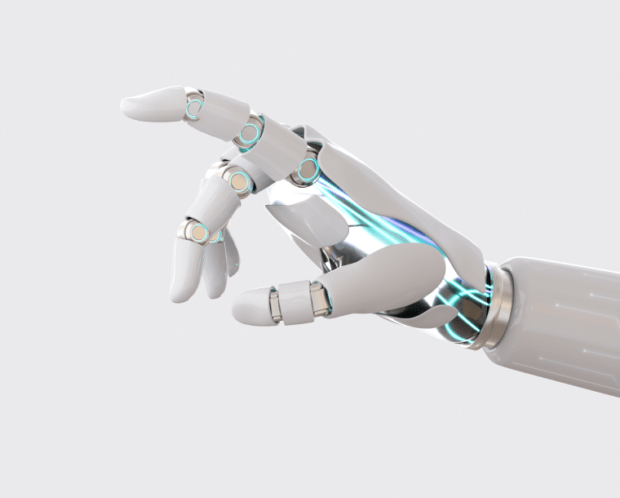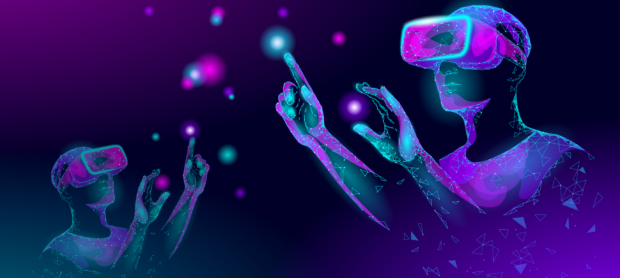Over the past several years, the software development industry has experienced remarkable growth, transforming into a highly dynamic and rapidly evolving field. As we evaluate the current state of the market in 2025 and anticipate future developments, it’s clear that staying informed about emerging trends is more important than ever.
One of the most significant drivers of change in software development continues to be cutting-edge technologies such as artificial intelligence (AI), machine learning (ML), blockchain, and the Internet of Things (IoT). These technologies have fundamentally reshaped the way software is developed, deployed, and managed, opening new economic and operational opportunities across various industries. Companies aiming to thrive in this sophisticated landscape must invest strategically in advanced tools and platforms, recruit exceptional talent, and build flexible, agile development teams capable of rapidly adapting to evolving market demands.
Rise of Vibe Coding
Introduced by prominent computer scientist Andrej Karpathy in February 2025, “vibe coding” represents an innovative programming paradigm driven primarily by artificial intelligence. Unlike traditional coding, where developers manually write each line of code, vibe coding leverages large language models (LLMs) to generate software solutions from natural-language prompts. This revolutionary approach significantly changes the role of software engineers—from direct coding to roles centered around supervising, validating, and refining AI-generated code.
The adoption of vibe coding opens the software development field to a broader range of participants, empowering even beginners or those without extensive coding expertise to build functioning applications. Despite this advantage, there are ongoing concerns related to the quality, efficiency, and security of automatically generated code, necessitating rigorous oversight, validation, and improvements by skilled developers to ensure robust, secure, and efficient software solutions.
Integration of Agentic AI
Agentic AI refers to advanced artificial intelligence systems capable of autonomous decision-making, problem-solving, and task execution without explicit human direction. Throughout 2025, numerous industry-leading firms—most notably Deloitte and EY—have launched powerful agentic AI platforms such as Zora AI and the EY.ai Agentic Platform. These advanced AI systems have begun transforming core business functions and internal operations across sectors, automating repetitive tasks, optimizing complex business processes, and significantly improving productivity.
As agentic AI continues to mature, its adoption poses substantial implications for the future workforce, reshaping job roles and organizational strategies. Companies embracing agentic AI are experiencing notable improvements in efficiency, innovation, and agility, while simultaneously facing ethical and compliance challenges regarding transparency, accountability, and control over automated decisions and tasks.


Expansion of Low-Code and No-Code Platforms
Low-code and no-code development solutions have dramatically grown in popularity by 2025, primarily due to their ability to simplify and accelerate software creation. These platforms enable individuals with minimal programming experience to develop functional applications through intuitive visual interfaces, drag-and-drop functionality, and pre-built modules. This democratization of software development fosters greater agility and productivity, allowing businesses to rapidly respond to market demands and reducing reliance on highly specialized technical resources.
However, while low-code and no-code platforms excel at streamlining simpler, repetitive application tasks, they often fall short when building highly customized, sophisticated, or enterprise-scale solutions. For these complex use-cases, professional software engineers with advanced programming skills remain indispensable. Organizations are thus encouraged to strategically balance their usage of low-code/no-code solutions with professional development resources to achieve optimal outcomes.
Emphasis on AI Governance and Ethics
With artificial intelligence playing an increasingly central role in software solutions, the importance of comprehensive AI governance and ethical frameworks has become paramount. AI governance encompasses clearly defined policies, oversight mechanisms, accountability standards, and ethical guidelines designed to manage the responsible implementation of AI technologies.
In 2025, numerous organizations have invested significantly in specialized AI governance platforms that monitor, analyze, and manage AI model outputs to mitigate risks related to bias, privacy violations, and misuse of data. Establishing strong AI governance frameworks also aids companies in regulatory compliance, public trust building, and reputation protection. Ensuring ethical, fair, transparent, and responsible AI practices remains critical to long-term organizational success and societal acceptance.
Focus on Sustainable Software Engineering
In response to growing global awareness and urgency around environmental sustainability, sustainable software engineering has gained prominence. This practice prioritizes the development of energy-efficient, resource-conscious software designed to minimize the environmental footprint and enhance long-term sustainability. Developers now actively seek methods to optimize algorithms, streamline data processes, reduce computational loads, and design lightweight applications that consume less energy and infrastructure resources.
Incorporating sustainability into software engineering brings significant benefits beyond ecological impacts—it enhances operational efficiency, lowers infrastructure costs, and contributes positively to corporate social responsibility (CSR) goals. Organizations prioritizing sustainable software development enjoy improved brand reputation and competitive advantage in an increasingly eco-conscious market.

Integration of Spatial Computing
Spatial computing, encompassing augmented reality (AR) and virtual reality (VR), has seen significant growth and adoption by 2025, profoundly reshaping user interaction with digital systems. Applications of spatial computing range widely, from immersive entertainment experiences and innovative gaming to advanced training, educational simulations, and virtual collaboration platforms across industries like healthcare, manufacturing, retail, and education.
Developers continually explore sophisticated methods to integrate spatial computing into diverse software solutions, dramatically enriching the user experience through immersive interfaces and interactive digital environments. While AR and VR technologies offer exciting opportunities for user engagement and interaction, they also present unique challenges, such as developing intuitive user interfaces, optimizing performance, addressing accessibility issues, and managing hardware compatibility. As these technologies mature, overcoming these hurdles remains a critical priority for developers seeking to harness spatial computing’s full potential.
Quantum Computing: The potential of quantum computing in software development
A new technology called quantum computing might change software development by making it possible for companies to handle challenging issues more rapidly and effectively. Quantum computers employ quantum bits, or qubits, which may exist in several states at once and enable exponentially quicker processing rates. Traditional computers use binary digits or bits to store and process information.
The capability of quantum computing to optimize complicated algorithms and processes makes it one of the most important potential uses in software development. This implies that businesses may employ quantum computing to do complex data analysis and simulations considerably faster than they would normally be able to. Also, businesses could be able to create more complex AI and machine learning models using quantum computing, which would result in predictions and insights that are more accurate.
While quantum computing has a lot of promise for software development, there are still a lot of obstacles to be cleared before it can be extensively used. As quantum computing is still in its infancy, it is not yet developed enough to enable extensive commercial applications. The high development expenses and need for specialized knowledge are further deterrents to entrance that currently exist. Yet, quantum computing is a topic that is receiving a lot of attention and funding, and it has the potential to have a huge influence on the creation of software.


Conclusion
The software development industry in 2025 is marked by rapid innovation, powerful technological advancements, and significant shifts in how applications are created, managed, and deployed. Key trends like the rise of vibe coding, the integration of autonomous agentic AI, the democratization of software creation through low-code and no-code platforms, increased focus on AI governance and ethics, the pursuit of sustainable engineering practices, and the expansive growth of spatial computing are collectively reshaping the digital landscape.
At Eventyr, we are aware of the difficulties and chances that organizations face in the quickly evolving field of software development. We strive to provide cutting-edge solutions to meet the specific requirements of each of our clients, and we have a qualified team of specialists at our disposal. We can assist you in bringing your concept to life, whether you’re trying to create a new application or improve your current program.
Thus, Eventyr is the best option if you’re seeking for a trustworthy and creative partner for your software development requirements. For more information on how we can assist you in achieving your company objectives via innovative software development solutions, contact us right now. Let’s collaborate to create a better future for your company!






